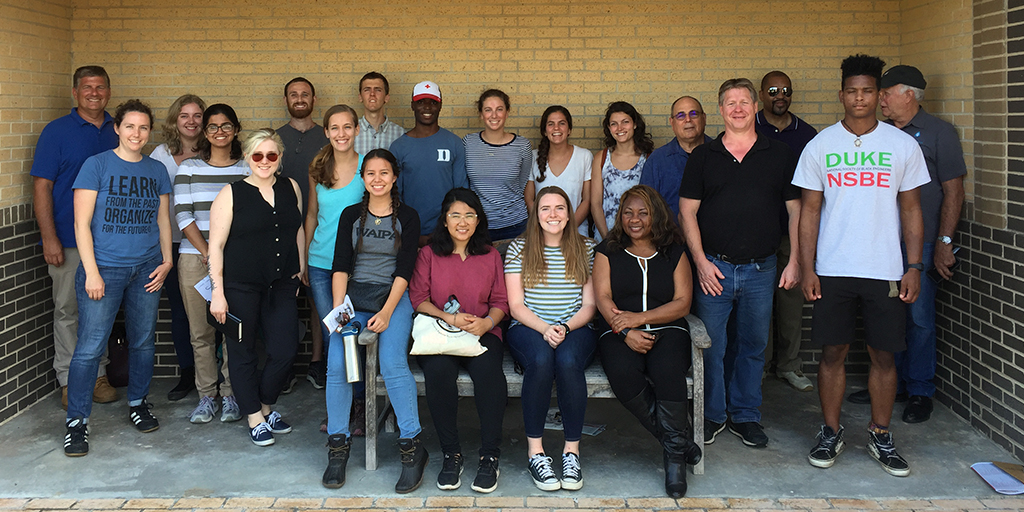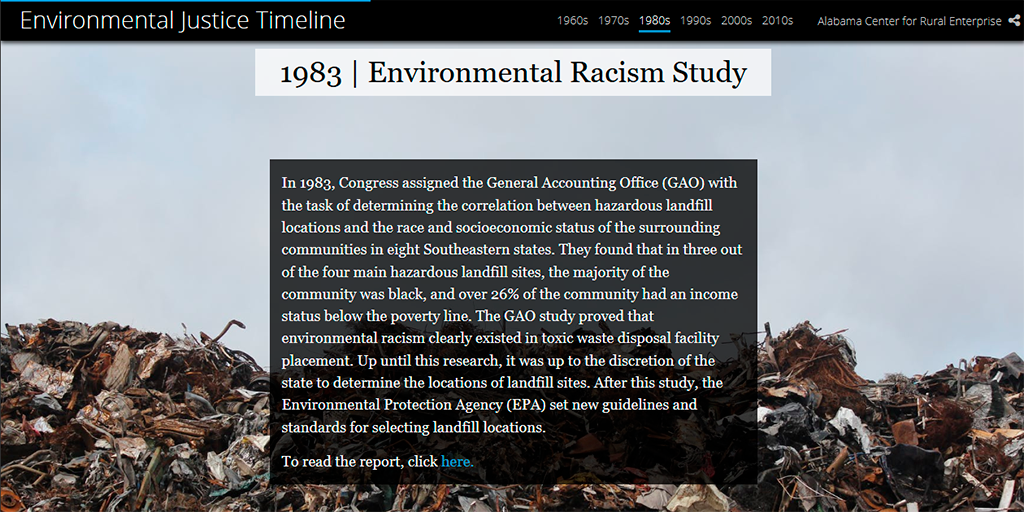Research Partnership Takes Aim at Environmental Injustice in the Rural South
September 26, 2019

On the road from Montgomery to Selma, Alabama, Lowndes County is home to about 10,000 residents. Three-quarters of the population is black, and a third live in poverty. Catherine Coleman Flowers grew up there, and she knows first-hand about the problems caused by inadequate wastewater treatment and sanitation.
Flowers is executive director of the Alabama Center for Rural Enterprise (ACRE) and practitioner in residence at Duke’s Franklin Humanities Institute. She also serves on the board for the Climate Reality Project.
Building on a partnership between Duke and ACRE begun in 2014, a Bass Connections project team investigated policy solutions, funding mechanisms and septic system design. Team members began by visiting Lowndes County to learn from Flowers, meet community members and hear from impacted families.
The team analyzed survey data from more than 300 households and prepared a cost analysis of various sanitation solutions. Broadening their focus, they developed maps of sanitation access in Alabama, North Carolina and West Virginia, and created a digital timeline of environmental justice events and leaders across the United States.
Team members also took part in a climate justice training on campus, attended the Climate Reality Leadership Corps training in Atlanta, traveled to Washington to hear Flowers’ testimony at a congressional hearing and learned more about environmental justice during a trip to “Cancer Alley” in Louisiana.
I think it is vital for researchers and the broader academic community to truly understand that we are not saviors. We should be working with (really for) these affected communities in ways that are transparent and incorporate mechanisms of accountability. –Brandon Hunter, Ph.D. in Civil & Environmental Engineering ’20
Related Grants and Projects
Undergraduate team members Elizabeth Griffin, Hailey Prevett and Marina Smalling took their research further through honors theses for the Civil & Environmental Engineering major.
Graduate student team members Brandon Hunter, Katy Hansen and Walker Grimshaw received a Duke Support for Interdisciplinary Graduate Networks (D-SIGN) grant to evaluate strategies to address the wastewater management problem from engineering, policy, economic, scientific and human angles
Faculty team leaders Elizabeth Albright, Erika Weinthal, Megan Mullin and David Schaad joined with other Duke faculty to create the Environmental and Economic Justice in Rural America project, for which they received an Intellectual Community Planning Grant.
Bass Connections supports the Duke WILL strategic framework for shaping the university of tomorrow. The ACRE project team is one example of how Duke is transforming teaching and forging partnerships across the region.
Learn More
- Read about this Bass Connections project team, ACRE-Duke Partnership to Improve Sanitation Access in Lowndes County, Alabama.
- See the RFP for 2020-2021 Bass Connections projects and submit a proposal by November 4.
- Explore the Bass Connections 2018-2019 Annual Report.

